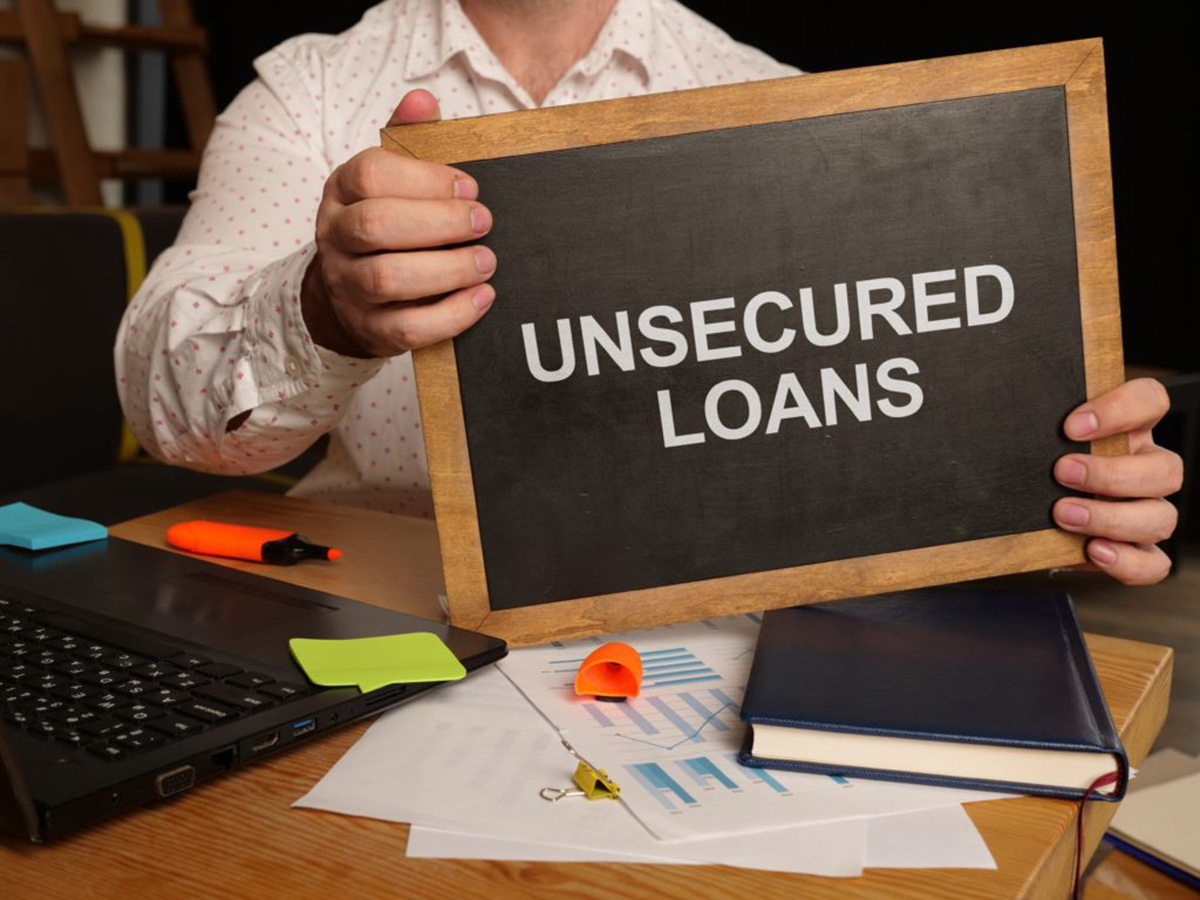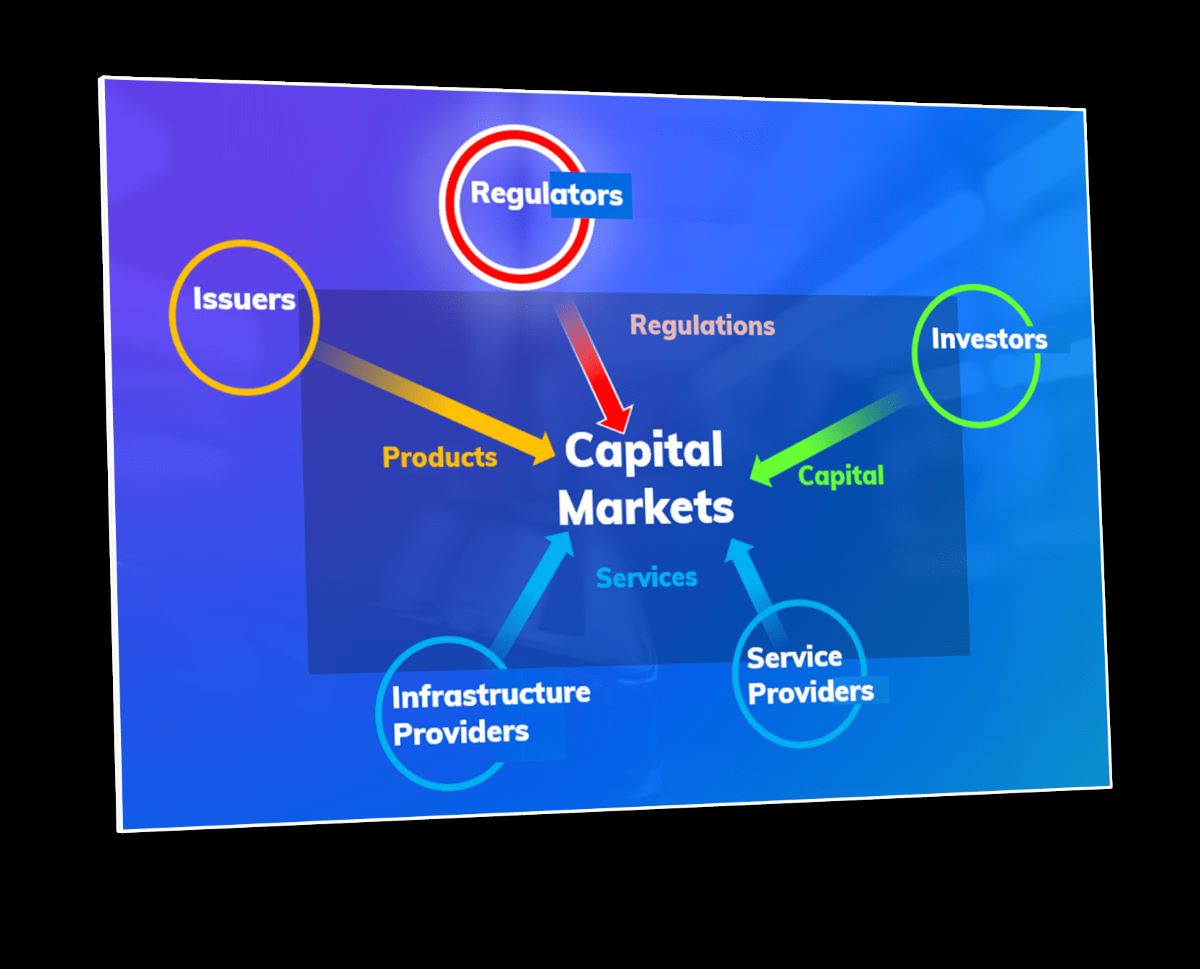Home>Finance>What Is A Personal Guarantee On A Business Loan


Finance
What Is A Personal Guarantee On A Business Loan
Modified: December 30, 2023
Learn the ins and outs of personal guarantees on business loans and understand the financial implications. Discover how this finance tool could impact your business.
(Many of the links in this article redirect to a specific reviewed product. Your purchase of these products through affiliate links helps to generate commission for LiveWell, at no extra cost. Learn more)
Table of Contents
Introduction
When it comes to obtaining a business loan, lenders often require some form of assurance that the borrowed funds will be repaid. One common method to mitigate the risk involved in lending to a business is through the use of a personal guarantee. But what exactly is a personal guarantee, and how does it impact the borrower?
A personal guarantee is a legal commitment made by an individual, typically the business owner or a key stakeholder, to take personal responsibility for the repayment of the loan if the business is unable to meet its obligations. In other words, the guarantor agrees to pay back the loan using their personal assets, should the business default on the loan.
The purpose of a personal guarantee is to provide extra security for the lender. By involving the guarantor’s personal assets, the lender minimizes the risk of losing their investment in the event of business failure or inability to repay the loan. From the lender’s perspective, the personal guarantee acts as a safety net and increases their confidence in approving the loan.
It’s important to note that a personal guarantee is commonly required for small businesses or startups with limited credit history or assets. Lenders perceive these businesses as higher risk, which necessitates additional security to protect their interests.
In the following sections, we will explore the mechanics of a personal guarantee, the risks and responsibilities involved, as well as alternative options available to reduce or eliminate the need for a personal guarantee. Understanding these aspects will help business owners make informed decisions when seeking financing for their ventures.
Definition of a Personal Guarantee
A personal guarantee is a legally binding agreement in which an individual, typically the business owner or a key stakeholder, agrees to be personally liable for the repayment of a business loan in the event of default by the business. By signing a personal guarantee, the guarantor accepts responsibility for the debt, even if the business is unable to repay it.
This agreement ensures that the lender has an additional layer of security beyond the assets of the business itself. In essence, the personal guarantee puts the guarantor’s personal assets, such as their home, personal savings, or other valuable possessions, at risk in case of loan default.
The personal guarantee outlines the terms and conditions of the guarantor’s liability, including the specific amount of the loan and any interest, fees, or other charges associated with it. It also details how and when the guarantor may be called upon to fulfill their obligations. The terms of the personal guarantee can vary depending on the lender and the specific loan agreement.
It’s important to note that while a personal guarantee provides a higher level of security for the lender, it does not absolve the business from its debt obligations. The loan is still considered a liability of the business, and the lender can pursue both the business and the guarantor for repayment.
Personal guarantees are commonly required for various types of business loans, including small business loans, lines of credit, equipment financing, and commercial real estate loans. The specific circumstances and risk profile of the business will often determine whether a personal guarantee is necessary to secure the loan.
Understanding the definition and implications of a personal guarantee is crucial for business owners considering borrowing funds. It is essential to carefully review the terms of any loan agreement and seek legal advice if needed before signing a personal guarantee.
Purpose of a Personal Guarantee
The primary purpose of a personal guarantee in the context of a business loan is to provide additional security to the lender. By requiring a personal guarantee, lenders ensure that they have recourse to the guarantor’s personal assets in the event that the business is unable to repay the loan.
There are several reasons why lenders may ask for a personal guarantee:
- Risk Mitigation: Lending to businesses, especially small businesses or startups, carries inherent risk. By obtaining a personal guarantee, lenders reduce their risk exposure as they have a course of action to recover their funds even if the business fails.
- Trust and Confidence: A personal guarantee demonstrates the business owner’s commitment to the loan and their willingness to take personal responsibility for its repayment. This level of commitment can instill confidence in the lender and increase the likelihood of loan approval.
- Limited Business Assets: For businesses with limited assets or collateral, a personal guarantee may be necessary as a supplementary form of security. Lenders may require a personal guarantee when the business’s assets are insufficient to fully cover the loan amount.
- Establishing Creditworthiness: Small businesses or startups with limited credit history may face challenges in obtaining financing. A personal guarantee can help mitigate these challenges by offering an additional layer of assurance to lenders.
- Enhanced Loan Terms: In some cases, a personal guarantee can improve the terms of the loan agreement, such as lower interest rates or higher loan amounts. By providing the lender with increased assurance, the borrower may be able to negotiate more favorable loan terms.
Ultimately, the purpose of a personal guarantee is to protect the lender’s interests and ensure the repayment of the loan. It provides lenders with a safety net and gives them the confidence to extend credit to businesses that may otherwise be deemed risky or lacking sufficient collateral.
It’s important for business owners to recognize the significance of a personal guarantee and carefully assess the risks involved before entering into such an agreement. Understanding the purpose behind the requirement can help borrowers make informed decisions and explore alternative financing options if necessary.
How a Personal Guarantee Works
A personal guarantee works by legally binding an individual, typically the business owner or a key stakeholder, to assume personal liability for the repayment of a business loan. Here’s a breakdown of how a personal guarantee operates:
- Loan Application: When applying for a business loan, the lender will evaluate the creditworthiness of the business and assess its ability to repay the loan. If the lender determines that additional security is required, they may request a personal guarantee.
- Signing the Guarantee: If the business owner agrees to provide a personal guarantee, they will be required to sign the guarantee document. This document outlines the terms and conditions of the guarantee, including the amount of the loan, interest rates, repayment schedule, and any additional fees associated with the loan.
- Legal Obligation: By signing the personal guarantee, the guarantor becomes legally obligated to fulfill the loan obligations in the event that the business defaults. This means that if the business fails to make timely loan repayments, the lender can pursue the guarantor for repayment.
- Guarantor’s Personal Assets at Risk: The personal guarantee puts the guarantor’s personal assets, such as their home, personal bank accounts, investments, or other valuable possessions, at stake. If the business is unable to repay the loan, the lender can legally seize these assets to satisfy the outstanding debt.
- Collection Actions: Should the business default on the loan, the lender can initiate collection actions against the guarantor. This can include filing a lawsuit, obtaining a court order to seize the guarantor’s assets, or pursuing other legal remedies to recover the outstanding amount.
- Co-Signers and Joint Guarantees: In some cases, lenders may require multiple individuals to sign a personal guarantee. This could include co-owners, partners, or other key stakeholders who have a significant interest in the business. Joint guarantees mean that each guarantor is equally responsible for the repayment of the loan.
It’s critical for business owners to understand the implications of a personal guarantee before signing such an agreement. They should carefully review the terms, assess their personal financial situation, and seek legal advice if necessary. Additionally, it’s essential to evaluate the business’s ability to repay the loan and consider alternative financing options that may reduce or eliminate the need for a personal guarantee.
Risks and Responsibilities of a Personal Guarantee
While a personal guarantee can be a useful tool for securing business financing, it carries significant risks and responsibilities for the guarantor. Understanding these risks is crucial before signing a personal guarantee:
- Financial Liability: By signing a personal guarantee, the guarantor assumes personal liability for the repayment of the loan. In the event that the business is unable to repay the loan, the guarantor’s personal assets, such as their home, savings, or investments, can be seized by the lender to satisfy the debt. The guarantor may face financial ruin if they are unable to honor the guarantee.
- Legal Ramifications: If the business defaults on the loan and the guarantor fails to fulfill their obligations under the personal guarantee, the lender has the right to take legal action. This can result in costly lawsuits, damage to the guarantor’s credit history, and potential loss of personal assets through court-ordered judgments or liens.
- Impact on Personal Credit: A personal guarantee can have a direct impact on the guarantor’s personal credit. If the business fails to repay the loan, it may reflect negatively on the guarantor’s credit report, leading to a lower credit score and potential difficulties in obtaining future credit. Any missed payments or defaults under the personal guarantee can have long-lasting consequences for the guarantor’s financial standing.
- Shared Responsibilities: In cases where multiple individuals have signed a personal guarantee, the responsibilities and risks are shared. Each guarantor is equally liable for the repayment of the loan, which means that if one guarantor is unable to fulfill their obligations, the remaining guarantors may be responsible for the entirety of the debt.
- Personal Stress and Strain: The responsibility of a personal guarantee can cause significant stress and strain on the guarantor. The fear of losing personal assets, the burden of repaying a significant debt, or the inability to meet loan obligations can have adverse effects on mental health and personal well-being.
Before agreeing to a personal guarantee, it’s essential for the guarantor to carefully evaluate their personal financial situation, assess the risks involved, and determine whether they are comfortable assuming such responsibility. Exploring alternative financing options, such as seeking investors or securing collateral-based loans, may mitigate the need for a personal guarantee.
Seeking legal advice is highly recommended to fully understand the risks and legal implications associated with a personal guarantee. By being aware of the risks and responsibilities involved, business owners can make informed decisions to protect their personal assets and financial well-being.
Impact on Personal Credit
Signing a personal guarantee for a business loan can have a direct impact on the guarantor’s personal credit. It’s crucial to understand how a personal guarantee can affect personal creditworthiness:
Credit Reporting: Lenders typically report loan activity, including personal guarantees, to credit bureaus. This means that if the business fails to make timely loan payments or defaults on the loan, it can negatively impact the guarantor’s credit report. Late payments, defaults, or a history of delinquency associated with the personal guarantee can lower the guarantor’s credit score.
Credit Score: A personal guarantee’s impact on a credit score is contingent upon several factors, including the severity of delinquencies, the extent of the loan default, and the overall credit history. A significant default resulting from a personal guarantee can cause a substantial drop in the guarantor’s credit score, making it more challenging to obtain credit in the future.
Borrowing Capacity: When a personal guarantee negatively impacts a credit score, it can affect the guarantor’s borrowing capacity. Lenders may view individuals with a history of loan defaults or delinquencies less favorably, potentially leading to higher interest rates, lower loan amounts, or even loan denials. A tarnished credit history resulting from a personal guarantee can restrict future borrowing opportunities.
Personal Assets and Collateral: In the event that the business defaults on the loan, and the guarantor is unable to fulfill their obligations under the personal guarantee, the lender may seek to seize personal assets or collateral to satisfy the debt. These legal actions can have long-lasting consequences on the guarantor’s credit and financial stability.
Rebuilding Credit: If a personal guarantee adversely affects a guarantor’s credit, rebuilding creditworthiness is possible but can take time and effort. Establishing a pattern of responsible financial behavior, such as making timely payments, reducing debt, and maintaining a good credit utilization ratio, can gradually improve the credit score over time.
It’s vital for guarantors to be aware of the potential impact on personal credit before signing a personal guarantee. Business owners should carefully evaluate their business’s ability to repay the loan and consider alternative financing options that may reduce or eliminate the need for a personal guarantee.
If a personal guarantee significantly affects personal credit, it’s crucial to work towards rectifying the situation. Communication with lenders, negotiation of payment terms, or seeking professional credit counseling can help address credit issues and safeguard personal financial health.
It’s advisable to consult with a financial advisor or credit expert for personalized guidance tailored to specific circumstances to mitigate any adverse impact on personal credit resulting from a personal guarantee.
Factors Influencing the Need for a Personal Guarantee
The decision of whether or not a lender requires a personal guarantee for a business loan can depend on several factors. Understanding these factors can help business owners anticipate when a personal guarantee may be requested:
- Creditworthiness of the Business: If the business has a strong credit history and demonstrates a good track record of repaying previous loans or obligations, lenders may be more lenient and may not require a personal guarantee. Conversely, if the business has limited credit history or a poor credit score, lenders may view the business as higher risk and require a personal guarantee.
- Financial Stability: Lenders assess the financial stability of the business to determine its ability to meet loan obligations. Factors such as profitability, cash flow, and asset value are considered. If the business has limited assets or inconsistent cash flow, lenders may seek additional security through a personal guarantee.
- Size and Type of Loan: The size and purpose of the loan can impact the lender’s decision to require a personal guarantee. Larger loan amounts or loans for high-risk ventures may warrant additional security in the form of a personal guarantee.
- Business Stage: Startups or early-stage businesses with limited financial history or assets often face increased scrutiny from lenders. In such cases, lenders may require a personal guarantee as a way to reduce the risk associated with funding a younger and potentially less stable business.
- Lender’s Risk Appetite: Each lender has its own risk tolerance and policies. Some lenders may have more stringent requirements and a higher threshold for risk, while others may be more flexible. Understanding the lender’s approach can help anticipate their likelihood of requesting a personal guarantee.
- Industry and Market Factors: Certain industries may carry higher risk due to economic volatility, regulatory changes, or other factors. Lenders may be more cautious and may require a personal guarantee for businesses operating in such sectors.
It’s important for business owners to be transparent with lenders about their financial circumstances and to provide comprehensive documentation to support their loan application. Demonstrating strong financials, a solid business plan, and a strong credit profile can potentially mitigate the need for a personal guarantee.
Exploring alternative financing options, such as crowdfunding, venture capital, or equipment leasing, may also reduce the need for a personal guarantee. Working with a financial advisor or business consultant can provide valuable insights and guidance on securing financing without the need for a personal guarantee.
Ultimately, understanding the factors that influence the need for a personal guarantee can help business owners navigate the loan application process more effectively and make informed decisions about their financing options.
Alternatives to a Personal Guarantee
While a personal guarantee is a common requirement for obtaining a business loan, there are alternative options that can help reduce or eliminate the need for a personal guarantee. Consider the following alternatives:
- Collateral: Providing collateral, such as real estate, equipment, or inventory, can serve as an alternative to a personal guarantee. By securing the loan with assets, lenders have assurance that they can recoup their investment in case of default.
- Accounts Receivable Financing: If the business has outstanding invoices from clients, accounts receivable financing allows the lender to provide funds based on the value of the invoices. This financing option reduces the need for a personal guarantee as the invoices act as collateral.
- Invoice Factoring: Similar to accounts receivable financing, invoice factoring allows businesses to sell their outstanding invoices to a third-party company, known as a factor. The factor provides immediate cash flow and takes responsibility for collecting payment from customers. This option does not typically require a personal guarantee.
- Angel Investors or Venture Capitalists: Seeking investment from angel investors or venture capitalists can provide funding without the need for a personal guarantee. These investors typically exchange funds for ownership stakes in the business, making a personal guarantee unnecessary.
- SBA Loans: Small Business Administration (SBA) loans are guaranteed by the U.S. government, providing lenders with an added layer of security. These loans can have more flexible requirements and lower collateral demands, reducing the need for a personal guarantee.
- Business Credit Cards and Lines of Credit: Utilizing business credit cards and lines of credit can provide access to funds without the need for a personal guarantee. However, keep in mind that these options often have lower credit limits and higher interest rates compared to traditional loans.
Exploring these alternatives may enable business owners to secure financing without putting their personal assets at risk. However, it’s important to note that each alternative has its own set of requirements and potential drawbacks. Business owners should carefully evaluate the terms, interest rates, and repayment obligations associated with each option before making a decision.
Working with a financial advisor or consulting with a business lender experienced in alternative financing options can provide valuable guidance and help identify the most suitable approach for obtaining funding without a personal guarantee.
By considering these alternatives, business owners can find financing solutions that align with their unique circumstances and risk tolerance, reducing the need for a personal guarantee and protecting their personal assets.
Conclusion
A personal guarantee is a significant commitment that can have far-reaching implications for business owners. It involves assuming personal liability for the repayment of a business loan, putting personal assets at risk if the business defaults. Understanding the various aspects of a personal guarantee is essential in making informed decisions about obtaining financing for your business.
We have explored the definition of a personal guarantee and its purpose, highlighting the role it plays in providing additional security for lenders. We have discussed how a personal guarantee works, including the legal obligations and potential consequences for the guarantor.
Risks and responsibilities associated with a personal guarantee have been discussed, including the potential impact on personal credit and the potential strain on personal finances. We have also examined factors that influence the need for a personal guarantee, as well as alternative options that can help reduce or eliminate the need for such a guarantee.
It’s crucial for business owners to carefully evaluate the terms and conditions of a loan agreement, assess their personal financial situation, and seek legal and financial advice when considering a personal guarantee. Exploring alternative financing options and understanding the requirements and potential drawbacks of each option can help protect personal assets and financial well-being.
Ultimately, the decision to provide a personal guarantee is an individual one that should be based on a thorough understanding of the risks and responsibilities involved. By making well-informed choices, business owners can secure financing for their ventures while safeguarding their personal financial stability.
Remember, knowledge and careful consideration are key when navigating the world of personal guarantees and business loans. Taking the time to educate yourself about the implications of a personal guarantee will empower you to make the best decisions for your business’s financial future.














